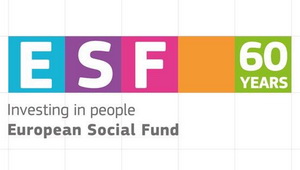 The year 2017 marks the 60th anniversary of the European Social Fund (ESF), Europe’s oldest and main instrument to invest in people.
The year 2017 marks the 60th anniversary of the European Social Fund (ESF), Europe’s oldest and main instrument to invest in people.
Today it is an important driver of
- job creation,
- promoting better education,
- more modern public administrations and social inclusion,
and therefore a key tool to ensure fairer opportunities for all citizens.
Celebrations of the Fund’s achievements and debates on the future of human capital funding in Europe kicked off with the conference “European Social Fund: past, present and future”, hosted by the Maltese Presidency of the EU, ahead of the celebrations of the 60th anniversary of the Treaties of Rome and the meeting with the EU Social Partners in Rome which was attended by President Juncker, Vice-President Dombrovskis and Commissioner Thyssen.
In the past 60 years, the European Social Fund has helped millions of Europeans find a job, gain a qualification or certificate and increase their skills levels. These outcomes are achieved through many thousands of projects carried out everywhere in Europe.
Examples include projects that aim at getting people into work, improving educational outcomes and fostering social inclusion. Also in the period 2014-2020 millions of people have benefitted and will benefit from the Fund, thanks to investments from the EU budget of €86.4 billion. During this programming period, the ESF focuses on a limited number of piorities to ensure maximum impact, with an emphasis on youth employment and social inclusion.
The online Open Data Platform which gives access to data on achievements under the European Structural and Investment Funds for 2014-2020, shows that ESF projects are making very good progress:
- over 30% of projects have already been selected for funding,
- projects under the Youth Employment Initiative even show a 60% implementation rate.
Source: ec.europa.eu
 Government of the Republic of Serbia
Government of the Republic of Serbia















 pdf [271 KB]
pdf [271 KB]
Leave a Comment